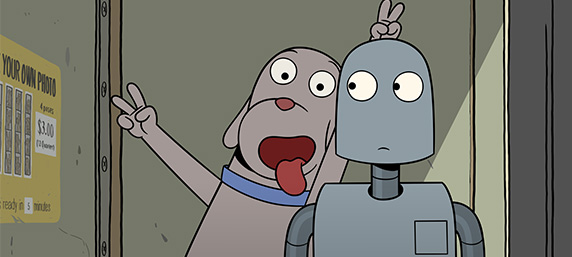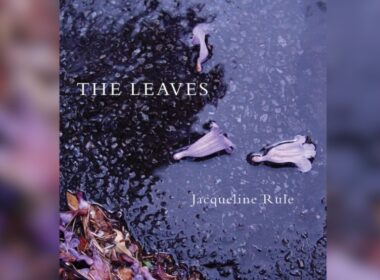Civil War
A very confusing aspect of Alex Garland’s new film, Civil War, must be unpacked to enjoy the movie. It’s that despite the title and the premise that the United States of America is at war against the seceding powers of California and Texas. And despite the film starting with footage of current, factual civil unrest events from the past five years, and Nick Offerman’s President to be shaped like a mishmash of Donald Trump and Ron de Santis. Despite all this, Civil War is a profoundly apolitical film.
Set in the very near future, halfway through the conflict between the Western Forces of California and Texas, sporting an Old Glory with just two stars, the rest of the country still clinging to the old name. We don’t know how this conflict came to be nor the minutia of its details, which is curious because we follow two members of the press. Lee (Kirsten Dunst) is an experienced photographer idolised by the young Jessie (Cailee Spaeny), and Joel (Wagner Moura) is the New York Times journalist chasing the thrill of a story – in this case, the two set off on the journey from New York to DC to interview the President, a daunting cast when the capital is in a “shoot-on-sight” zone, even for the press.
So, Civil War is a road movie. It reminded me of Alfonso Cuarón’s Y Tu Mamá También, but instead of a window through the unreachable echelons of society, it’s a vision of America’s selfish downfall. Lee and Joel, with Jessie and their mentor Sammy (Stephen McKinley Henderson), see a country that is oddly too familiar for what is a hypothetical case. Every stop they make along the way and every interaction with civilians reminds them that in lawlessness, Americans revert to pure territorial madness.
Garland believes America is inherently nihilistic and that the only thing stopping them from self-destruction is the little left in their civil infrastructures. How he develops this idea can determine whether a person enjoys the film. He doesn’t ham-fist some political idea easily connected to a current story. The clues are there – why a California/Texas alliance, two states in the opposing spectrum of American politics? Why is there a lack of clarity on who represents who in the political landscape? Garland strips the film of anything that can revert our interpretation to any sort of social commentary; for that reason, it is easy to find his message empty.
But it’s what he doesn’t say explicitly that speaks louder. The world of Civil War is uninviting, but it comes across as authentic. There’s a tense interaction with a landowner played by Jesse Plemons, whose interaction brings forth America’s rotten core. “We are all American,” says Joel, with his Brazilian accent. “Yes, but what kind of American are you?” Plemons replies. It’s interesting how the only remnant of a caring society is found in a community of refugees. The majority of them are people of colour – because Garland wants us to remind us that this “I’ve got mine” violent mentality is inherently Anglo-European.
All this is witnessed by journalists who chase the most eye-catching picture, not the truth. Like soldiers, photographers also shoot; like soldiers, they are driven not by a sense of goodness but by a duty devoid of morals. But, in retrospect, hasn’t this been present in all of Garland’s films? Wasn’t this disappointment in our humanity part of what made Sunshine and Ex-Machina so scary? His seminal short-lived TV show, Devs, accused the personal endeavour of tech moguls to be driven not by a sense of goodness but their own selfish esprit – and that will be the end of us. Garland doesn’t trust in us, and why should he?
The last shot of the film represents precisely that. As we approach the White House, the film reverts into a pure action frenzy, like a Call of Duty videogame that progressively gets more uncomfortable to watch. At the end, there is a shot of the press and the army standing in the bloody shot of the political structure. Garland bows out not with an image of hope but a hard-to-swallow reality. And that’s not political; that’s philosophical.
Verdict: 4.5 out of 5
A hard-hitting, tense road trip that we hoped was only about America, but in reality, it says more about all of us. This one is for everyone who doesn’t trust us to keep things intact when it all falls apart.

Robot Dreams
Pablo Berger is probably the most competent filmmaker working right now, and it’s incredible how he never moved to Hollywood. If there’s one artist I trust could nail a simple blockbuster, regardless of the genre, in the most enjoyable way, that’s him. With a career that never left Spain, between his first Torremolinos 73 in 2003 and last year’s Robot Dreams, Berger only made four features, all different genres, all crowd-pleasers.
Robot Dreams is a little animated feature with no dialogue. Set in the 1980s in New York, in that charming animated reality where anthropomorphic animals populate society. In this case we follow a lonely Dog who orders a robot friend to keep himself company. The two connect right away. They dance in the park, have dinner together, and go to the beach. The Dog finds the best kind of love, not romantic but spiritual. Then, one day, they go to the beach and fall asleep in the sun after a stint in the water. When the two wake up, the beach is empty, and a sad reality strikes – the robot isn’t waterproof and can’t move. Worse, the beach is now closed for winter and will only be open for six months. So the Dog sees himself alone again but is driven by the purpose of waiting for the day he can return to his friend and save him.
Berger is terrific at telling stories without dialogue. His previous film, Blancanieves, was a black-and-white silent retelling of Snow White set in 1920’s Spain that had unfairly been compared by France’s The Artist, but while Hazanavicius’ uses the novelty of his shtick has a clever gimmick, Berger approached it in a profoundly professional sense – his film has no dialogue because it doesn’t need words to express the story and emotions. That level of efficient filmmaking ability is rare, and I’d dare say Berger is one of the few who can do it for the length of an entire feature without breaking the fourth wall.
Robot Dreams never feels exhausting, mainly because Berger characterizes the Dog, the Robot, and the world they live so well. If you think of these guys because their concerns are genuine – no one wants to be alone, not even a robot programmed to care.
The final act is especially effective at this. It’s a long and heartbreaking lesson in growth and letting go and how we are more robust and happier when we connect with each other. It complements the nihilism of Civil War perfectly, like a palate cleanser that reminds its audience that there are still good things that can make us cry with a big smile.
Verdict: 4 out of 5
An expertly made charming animated feature that is so easy to like that I feel you’ll have to be pretty heartless not to enjoy it.




